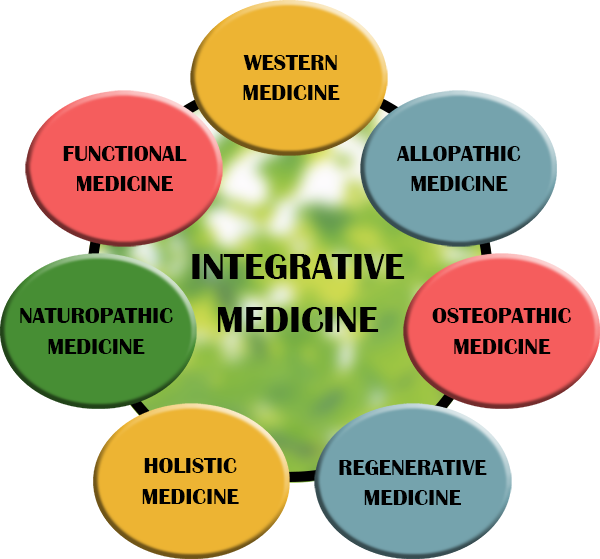Naturopathic medicine is a type of alternative medicine that focuses on natural remedies and the body's ability to heal itself. It encompasses a range of therapies and practices that aim to promote wellness and prevent illness by addressing the underlying causes of disease rather than just treating symptoms.
Principles of Naturopathic Medicine
Naturopathic medicine is guided by six core principles: The Healing Power of Nature: Naturopathic medicine recognizes the inherent healing abilities of the body and seeks to support and enhance these processes. Identify and Treat the Cause: Rather than merely suppressing symptoms, naturopathic practitioners aim to identify and address the underlying root causes of illness. First, Do No Harm: Naturopathic treatments are designed to minimize the risk of harmful side effects and encourage the body's natural healing processes. Doctor as Teacher: Naturopathic doctors educate and empower patients to take control of their own health through lifestyle changes and self-care. Treat the Whole Person: Naturopathic medicine takes into consideration the physical, mental, emotional, and spiritual aspects of a person's health. Prevention is the Best Cure: The focus is on preventing disease and promoting optimal health through proactive measures such as healthy diet, exercise, and stress reduction.
Popular Naturopathic Therapies
Naturopathic medicine employs a variety of therapies to support the body's healing processes. Some of the most popular ones include:
Herbal Medicine
Herbal medicine utilizes plant-based remedies to address various health concerns. Naturopaths carefully select and prescribe herbs that have specific healing properties and can be used to support different body systems.
Homeopathy
Homeopathy is a form of alternative medicine that involves using highly diluted substances to stimulate the body's natural healing response. It is based on the principle of "like cures like," where a substance that causes symptoms in a healthy person is used in a diluted form to treat similar symptoms in a sick person.
Acupuncture
Acupuncture is a component of Traditional Chinese Medicine that involves inserting thin needles into specific points on the body to stimulate the flow of energy and restore balance. It is often used to manage pain and promote overall well-being.
Nutritional Counseling
Naturopathic doctors provide dietary advice and personalized nutrition plans to improve overall health and address specific health concerns. They focus on nutrient-dense whole foods and may recommend supplements when necessary.
Physical Medicine
Physical medicine encompasses a range of therapeutic approaches such as massage, hydrotherapy, and chiropractic adjustments. These techniques are used to alleviate pain, reduce inflammation, and improve musculoskeletal function.
Conditions Treated by Naturopathic Medicine
Naturopathic medicine can be used to address a wide range of acute and chronic health conditions. Some of the most commonly treated conditions include: Allergies Digestive disorders Hormonal imbalances Chronic pain Stress-related conditions Autoimmune diseases Cardiovascular conditions Respiratory conditions Depression and anxiety It is important to note that while naturopathic medicine can be effective in managing many conditions, it is not a substitute for conventional medical care. In some cases, naturopathic and conventional treatments can be used together to provide comprehensive care.
The Role of Naturopathic Doctors
Naturopathic doctors (NDs) are highly trained healthcare professionals who have completed a four-year postgraduate program at an accredited naturopathic medical school. They are licensed to diagnose, treat, and prevent illness using natural therapies. During an initial consultation, a naturopathic doctor will conduct a thorough assessment of the patient's health history, lifestyle, and environment. They may also order laboratory tests to gain a comprehensive understanding of the individual's health status. Based on this evaluation, the naturopathic doctor will develop a personalized treatment plan. This may include dietary changes, nutritional supplements, herbal remedies, lifestyle modifications, and other natural therapies. Regular follow-up visits are an essential part of the patient's journey, allowing the naturopathic doctor to monitor progress, make any necessary adjustments to the treatment plan, and provide ongoing support and education.
Conclusion
Naturopathic medicine offers a holistic approach to healthcare, focusing on treating the root causes of illness and promoting optimal wellness. By harnessing the body's natural healing abilities and utilizing natural therapies, naturopathic doctors aim to support the body's innate ability to heal itself.


